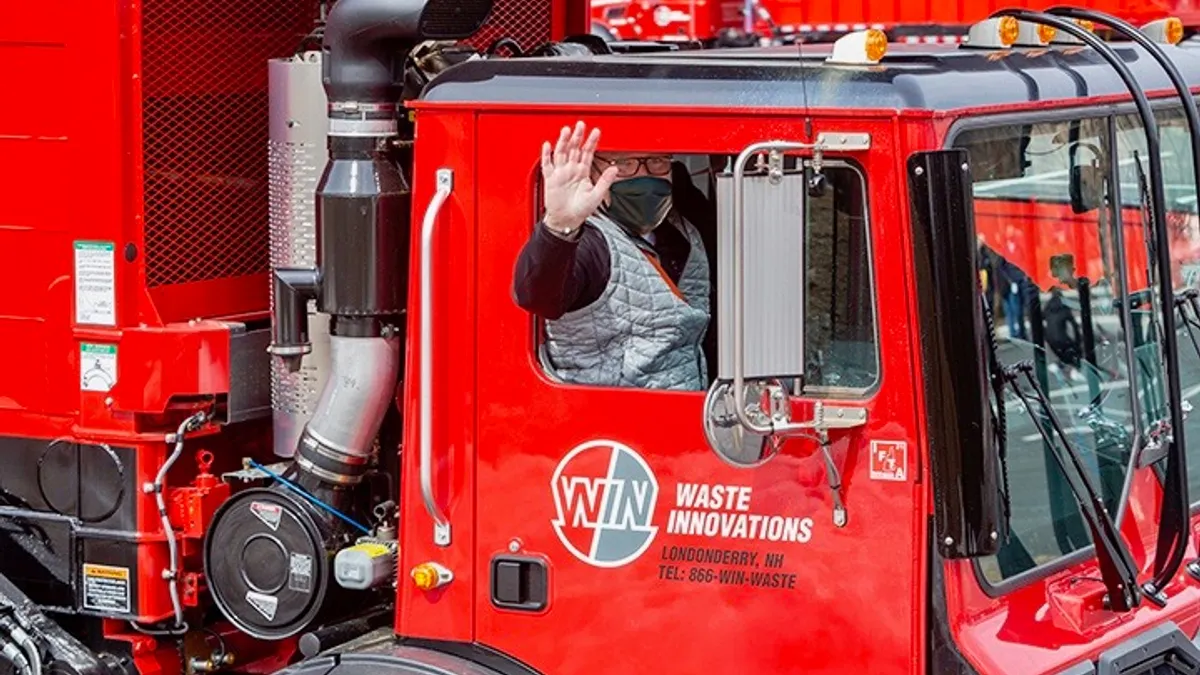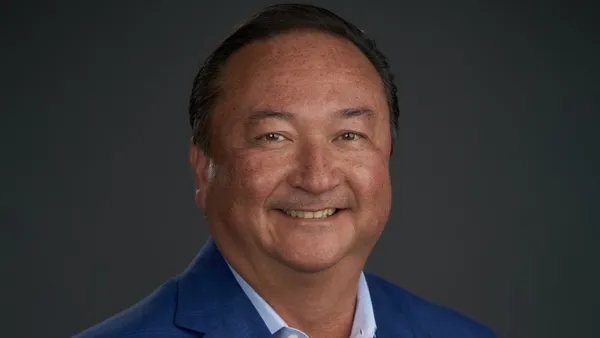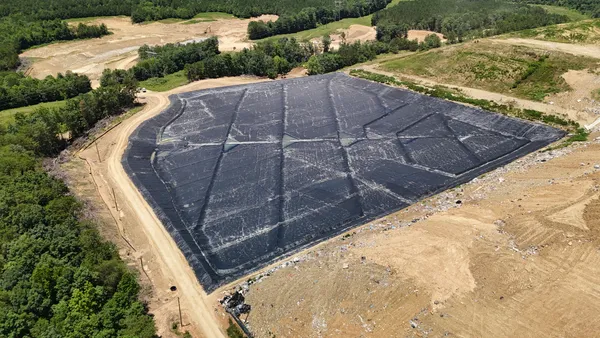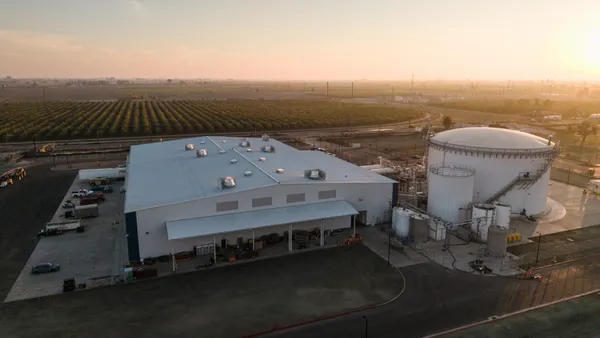UPDATE: April 6, 2021: Wheelabrator Technologies announced the official integration of Tunnel Hill Partners and eight other previous acquisitions under the new WIN Waste Innovations name on Tuesday. The company will hold events to formally recognize the rebranding on April 20.
Dive Brief:
- Wheelabrator Technologies is acquiring Tunnel Hill Partners and will rebrand as WIN Waste Innovations, with a projected $1 billion annual revenue run rate. A public brand launch is planned for April 20.
- The deal will be complete following the closing of a corporate debt refinancing, expected to happen March 25. A $1 billion seven-year term loan will be used to recapitalize the business. The company is also pursuing a $400 million five-year revolving credit facility, to be used for M&A or other purposes.
- The two companies were acquired separately by Macquarie Infrastructure and Real Assets (MIRA) in early 2019 and that private equity ownership remains in place. Looking ahead to an eventual exit strategy, CEO Bob Boucher said a sale is possible or "it's probably more likely than not that we would end up doing an IPO."
Dive Insight:
After nearly 90 years, one of the industry's oldest company names will soon be retired.
Dating back to a piece of machinery originally used in foundries for surface cleaning of metals, and more recently synonymous with combustion facilities, the Wheelabrator name is no longer seen as reflective of the company's broad, vertically-integrated portfolio. In its place, WIN Waste will be one of the largest private companies in the U.S. waste sector.
"The name, although it has a great sense of pride to a lot of the folks that have worked in the company for a long period of time, it doesn't have any commercial benefits to us," said Boucher, noting Wheelabrator is associated with just one part of a business that now includes collection and other customer-facing services. "We should be focused on something that is going to be beneficial to us walking through the door, all the way from Joey's Pizza to a large corporate [client]."
The New Hampshire-based company now reports having 1,900 employees across multiple Northeastern states, plus Ohio and Florida, with more than 110,000 residential and commercial customers. Its portfolio includes 14 municipal waste combustion facilities and four ash monofills (the second-largest set of such assets in the U.S.), two landfills, 20 transfer stations, three MRFs and 346 collection vehicles. It's also the largest integrated waste-by-rail company in the U.S., with 1,877 rail cars and multiple rail-served transfer facilities.
After a long history of various owners and formats — most recently including stints as a public company, a fully owned subsidiary of Waste Management and then under a previous private equity fund — Wheelabrator reached another turning point in 2019. After taking steps toward an initial public offering in 2018, the company was acquired by MIRA and plans were later developed to combine its focus with the recently acquired Tunnel Hill. Boucher began overseeing operations for both companies under a master service agreement in July 2019.
During that time, the companies have been among the most active acquirers of collection and transfer assets in the Northeast. Transactions include New York-based County Waste Services, as well as New England-based Charles George Companies, United Materials Management, Shipyard Waste Solutions, Bay State Disposal, Noonan Waste Service and Fiore Trucking Recycle & Disposal. The most recent deals are not included in WIN Waste's $960 million pro forma revenue projections for 2020.
That figure also excludes Wheelabrator's recently divested UK business, which started with one project in 2015 and grew to include seven projects (three of which are under development) worth $170 million of earnings before interest, taxes, depreciation and amortization. In reference to the refinancing, Boucher said selling those assets to a fund managed by First Sentier Investors was "the catalyst for all this to be able to happen."
Moody's assigned the refinancing deal a B1 credit rating, due in part to the company's unique assets and long-term contracts.
"With disposal capabilities supported by strategically-located facilities and rail-connected transfer stations, the company is well-positioned to capture growing demand in the northeast region where landfill capacity is tightening. This should continue to drive positive pricing and support better margins and cash flow generation over the intermediate term," said the credit agency in a release, also noting a "profitable expansion of the company's operating footprint beyond its primary focus on U.S. northeast markets for greater scale" could lead to an upgraded rating.
Boucher didn't specify further plans but said growing collection assets will be a focus and hinted at "expansion opportunities at a couple of sites." As previously predicted by MIRA leadership — and competitors such as Covanta — Boucher thinks rising attention to climate change and landfill methane emissions could eventually be a boon for alternative options in the U.S. Amid the rising interest in environmental, social and corporate governance strategies and investments, he predicts this could help modern waste combustion projects be viewed more favorably by regulators and the public.
Unlike some other countries, there is not currently a national regulatory structure to incentivize such a move in the U.S., and new or expanded projects have been limited in recent years. From ongoing pressures around the lifespan of its facility in Saugus, Massachusetts (the first of its kind in the country, built in 1975) to a contentious contract debate for a facility in Baltimore, Wheelabrator has experienced the challenging local dynamics of running such facilities.
Any serious possibilities for building new waste-to-energy projects is seen as a ways off, along with consideration of what the future holds for WIN Waste when it comes time for MIRA's inevitable exit strategy. In the meantime, the company appears likely to keep capitalizing on ever-tightening regional disposal capacity and further acquisition opportunities.
"In a short period of time, and kind of quietly, we've become a pretty dominant player in the Northeast," said Boucher. "I think we've got some more room to grow."
Details in this story about the scale of WIN Waste's operations have been updated














